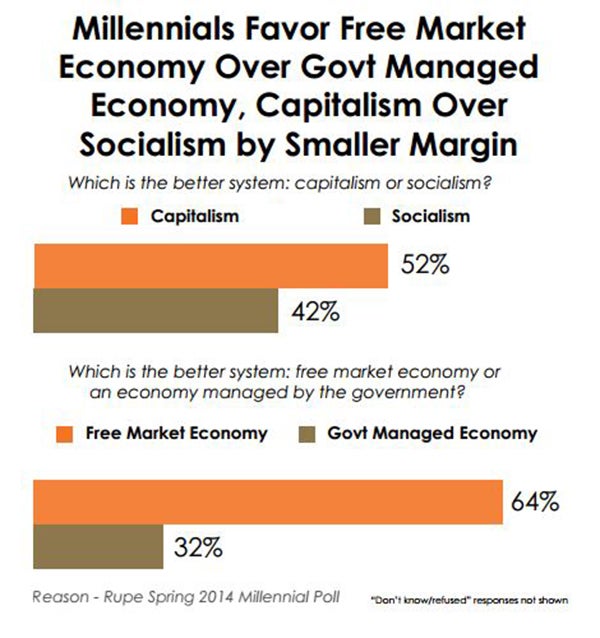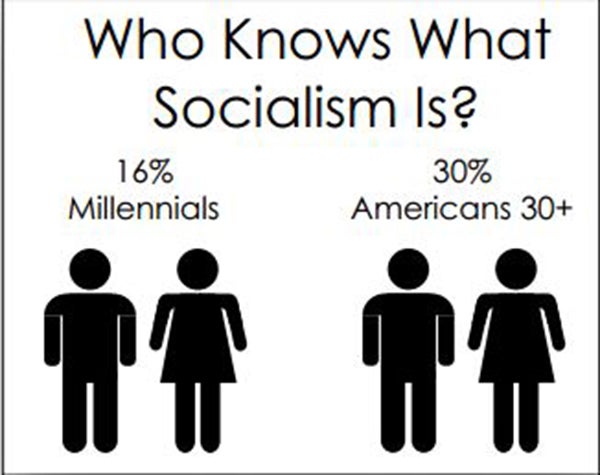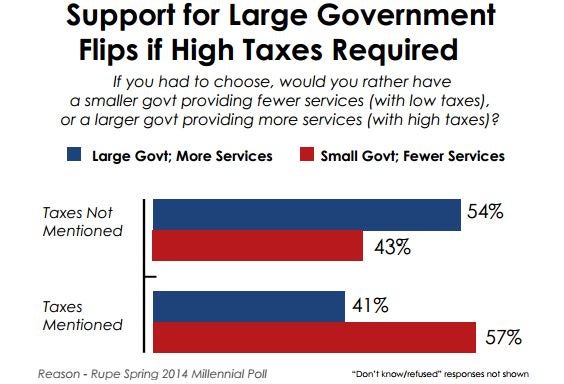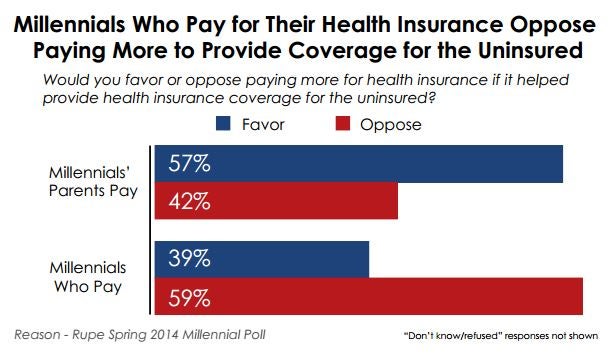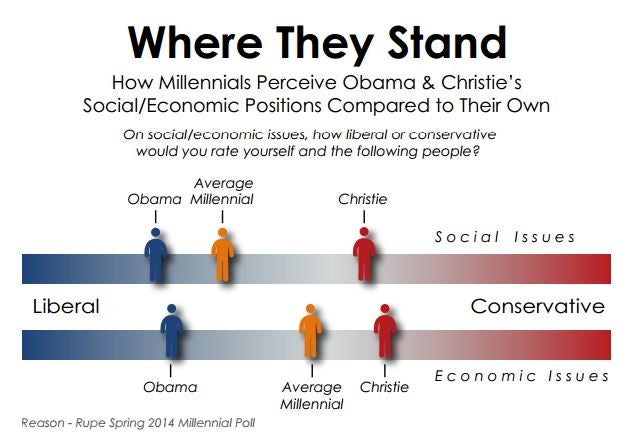5 Charts That Explain Millennial Voters
Melissa Quinn /
The Cold War ended long ago, and according to one survey, it’s time for politicians to leave Cold War-era terms such as “big government,” “socialism” and “capitalism” behind. The reason: Such words mean little to the millennial generation, who came of age during the Great Recession.
The 18- to 29-year-old demographic played a crucial role in the 2008 and 2012 elections. These millennials were instrumental in electing Barack Obama to the presidency not once, but twice. In 2008, Obama won 66 percent of voting millennials; in 2012, he captured 67 percent.
Emily Ekins, polling director for Reason Foundation, says that had those ages 18 to 29 not voted in 2012, Republican nominee Mitt Romney would be in the White House.
Polling firms, marketers and politicians continue to have put millennials under the microscope to determine their political leanings and what drives them to the polls.
A recent survey by Reason-Rupe found that many millennials don’t understand the words “big government,” “socialism” and “capitalism” — language that emerged after World War II and during the Cold War. Generation Y, Ekins says, simply doesn’t extract much meaning from such terms.
Ekins discussed the importance to communicators of the findings of Reason-Rupe’s Spring 2014 Millennial Survey during last week’s Bloggers Briefing at The Heritage Foundation.
Check out some key results of the poll in the five charts below:
1. Millennials say “capitalism” is a better economic system than “socialism” by only a small margin. However, when asked if they believe a free market economy is better than a government-managed one, the margin widens substantially.
2. Millennials don’t quite know what “socialism” means.
3. Millennials say they prefer a “larger government” that provides more services. They don’t tend to think of “big government” leading to higher taxes and heavier regulation. Once the possibility of higher taxes to support a larger government is mentioned, though, millennials’ support shifts.
4. Under the Affordable Care Act, or Obamacare, the cost of health insurance increases for young people to subsidize the cost of health insurance for the elderly and less affluent. Millennials covered under their parents’ plans — they can remain so until 26 under Obamacare — support others helping pay to insure the uninsured. However, those paying for their own plans disagree.
5. Millennials are fiscal centrists and social liberals, Ekins says. On fiscal issues, millennials see themselves as closer to Republicans such as New Jersey Gov. Chris Christie than to President Obama, and are centrists. However, millennials rate themselves closer to liberal Democrats such as Obama on social issues.

